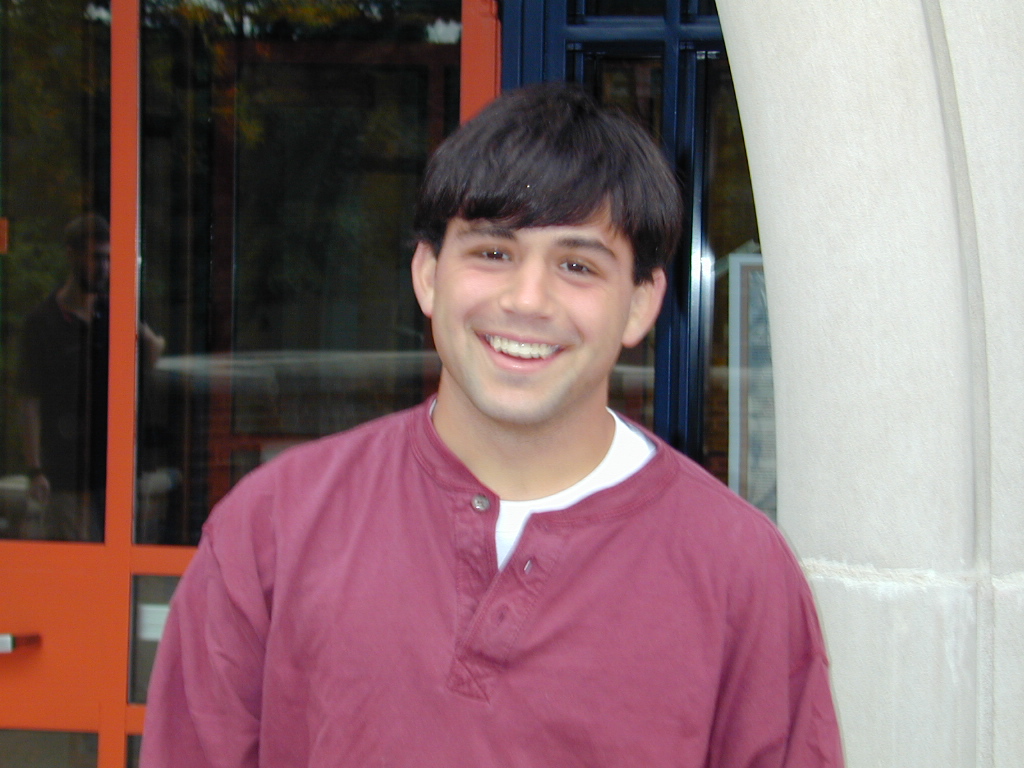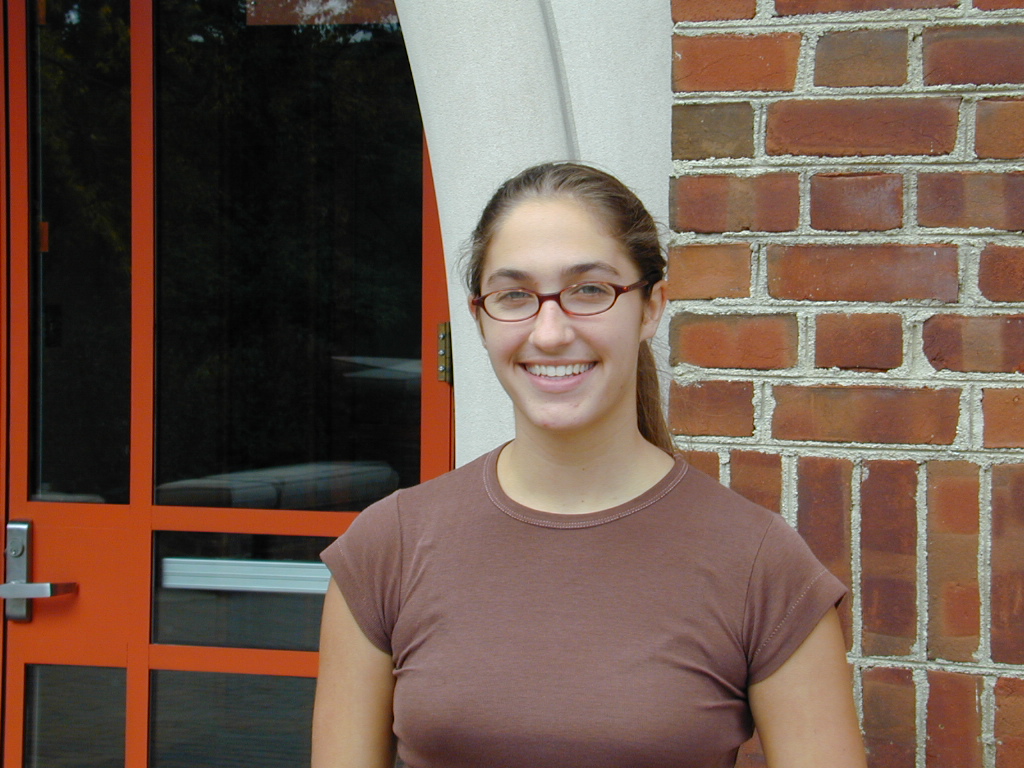Maureen is working with me on one project
- Maureen is studying the effect of clumping and scattering on the ability of central stars to heat their surrounding envelopes. She is studying the role of radiative streaming and FOS on the dust temperature.
Rebecca is working with me on one project
- Rebecca is studying the evolution of grains and their icy mantles, as well as the physical structure of the star-forming region B335. She is working to determine if observational signatures exist of grain evolution, and if the source can be described as having a shu-type infall.
Richard is working with me on one project
- Richard is studying the role of clumpy screens of material to affect line absorption, and thus to begin to constrain the structure of the inner regions of massive star formation.
Matt worked with me on one project
- Matt studied the star-forming core L1689B. He confirmed the existence of a filament related to the core, and the structure of the core + filament combination.
Matt worked with me on two projects
- The first involves the characterization of the structure of a starless core, with particular attention on the external radiation field and sharpness of the cloud edge, with implications as to the timescale of star formation.
- The second involves the automated fitting of observations with models, in a truly unbiased and comprehensive manner.
Will worked with me on two projects
- Will studied the effect of radiation streaming among clumps. In particular, he showed that clumps can shadow regions behind them from heating radiation, and the holes between clumps can allow radiation to stream to larger distances.
- The second involved the study of grain evolution in star-forming regions.
Wathanu worked with me on one project
- Wathanu helped to develop and study the role of chemistry in evolving star-forming regions. In particular, she studied the effects of chemistry, adsorption, and desorption in isothermally collapsing clouds.
Sheila worked with me on two projects
- The first involved the characterization of the structure of the pre-protostellar core, L1544. She confirmed the triaxial nature of the core, and constrained the density structure to be consistent with a bonner-ebert ellipsoid -- that is with isothermal infall under the influence of gravity.
- The second involved the study of clumpy, fractal clouds.
Rebecca is working with me on two projects.
- The first involves the characterization and parameterization of the dust temperature, and emergent intensity from a wide variety of sources. The goal is to see if it is possible to parameterize the results of our complicated models for use by observers.
- The second involves the study of truly 3-dimensional regions, and the ability for radiation to heat these regions, as well as the observational signatures of clumping.

Meredith is working with me on a project in star formation.
- Meredith's project involved the ability for very small dust grains (almost molecule-size) to be heated to extremely high temperatures by the interstellar radiation field. Meredith has found that their low heat-capacity makes this possible, and that such emission is extremely important in studying potential sites of star-formation. This work was presented at the January 2002 AAS meeting, and is in preparation for submission to a professional journal.

Matt worked with me on two projects.
- The first involved an analysis of current techniques for studying star-forming regions. In particular, we studied the accuracy of the tools observers use to infer the properties of star-forming regions, and suggested future improvements. This project was published (with Matt as a co-author) in the Monthly Notices of the Royal Astronomical Society.
- The second involved the study of truly 3-dimensional regions, and the ability for radiation to heat these regions, as well as the observational signatures of clumping. This work is currently being prepared for submission to a professional journal.

Emily worked with me on two projects.
- The first involved an the search for star-forming regions, and mapping of the density structure of molecular clouds. This work was done in collaboration with Tracy Huard of Harvard University. This work is in preparation for submission to a professional journal.
- The second involved the potential for gas in circumestellar outflows to fall below the universal 2.7K cosmic microwave background radiation temperature. This work was presented at the Jan. 2002 AAS meeting, and is in preparation for submission to a professional journal.
